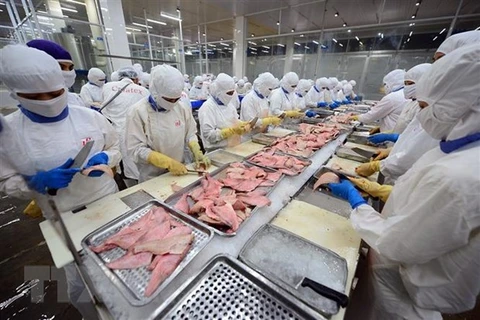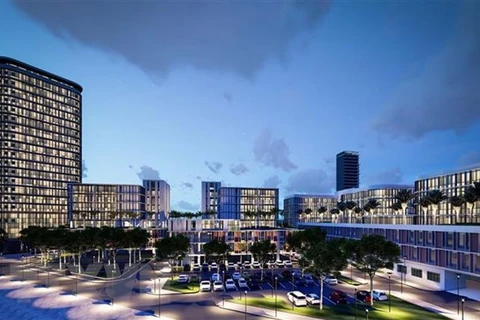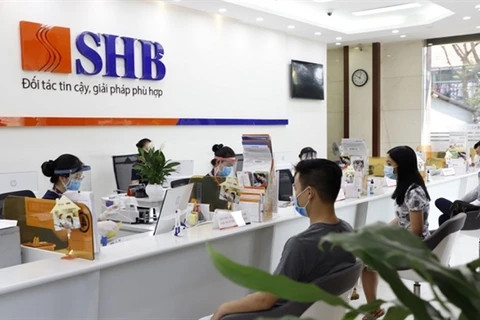Hanoi (VNA) – Integration with global manufacturing has helped keep Vietnam’s economy humming during the pandemic, according to an article published on news site The Economist on August 30.
The article wrote that, having impressed the world by taming the virus last year, Vietnam is now in the middle of its worst outbreak of COVID-19 by far. Parts of the country are in strict lockdown and a swathe of factories, from those making shoes for Nike to those producing smartphones for Samsung, have either slowed or shut down, disrupting global supply chains.
In 2020, Vietnam’s GDP rose by 2.9 percent even as most countries recorded deep recessions. Despite the latest outbreak, this year could see faster growth: the World Bank’s latest forecasts, published on August 24, expect an expansion of 4.8 percent in 2021.
The author said such performance hints at the real reason to be impressed by Vietnam. The nation’s openness to trade and investment has made it an important link in supply chains. And that in turn has powered a remarkable and lengthy expansion. Vietnam has been one of the five fastest-growing countries in the world over the past 30 years. Its record has been characterised not by the fits and starts of many other frontier markets, but by steady growth. The government is even more ambitious, wanting Vietnam to become a high-income country by 2045, a task that requires growing at 7 percent a year.
The article said Vietnam’s deep connection to global supply chains and high levels of foreign investment makes it seem more like Singapore. Since 1990, Vietnam has received average foreign direct investment inflows worth 6 percent of GDP each year, more than twice the global level.
As the rest of East Asia developed and wages there rose, global manufacturers were lured by Vietnam’s low labour costs and stable exchange rate. That fuelled an export boom. In the past decade, exports by domestic firms have risen by 137 percent, while those by foreign-invested companies have surged by 422 percent.
The author concluded that the setback from COVID-19 aside, it might seem hard not to be rosy about a country that appears to be in the early stages of emulating an East Asian economic miracle./.
The article wrote that, having impressed the world by taming the virus last year, Vietnam is now in the middle of its worst outbreak of COVID-19 by far. Parts of the country are in strict lockdown and a swathe of factories, from those making shoes for Nike to those producing smartphones for Samsung, have either slowed or shut down, disrupting global supply chains.
In 2020, Vietnam’s GDP rose by 2.9 percent even as most countries recorded deep recessions. Despite the latest outbreak, this year could see faster growth: the World Bank’s latest forecasts, published on August 24, expect an expansion of 4.8 percent in 2021.
The author said such performance hints at the real reason to be impressed by Vietnam. The nation’s openness to trade and investment has made it an important link in supply chains. And that in turn has powered a remarkable and lengthy expansion. Vietnam has been one of the five fastest-growing countries in the world over the past 30 years. Its record has been characterised not by the fits and starts of many other frontier markets, but by steady growth. The government is even more ambitious, wanting Vietnam to become a high-income country by 2045, a task that requires growing at 7 percent a year.
The article said Vietnam’s deep connection to global supply chains and high levels of foreign investment makes it seem more like Singapore. Since 1990, Vietnam has received average foreign direct investment inflows worth 6 percent of GDP each year, more than twice the global level.
As the rest of East Asia developed and wages there rose, global manufacturers were lured by Vietnam’s low labour costs and stable exchange rate. That fuelled an export boom. In the past decade, exports by domestic firms have risen by 137 percent, while those by foreign-invested companies have surged by 422 percent.
The author concluded that the setback from COVID-19 aside, it might seem hard not to be rosy about a country that appears to be in the early stages of emulating an East Asian economic miracle./.
VNA
























